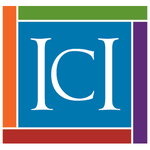Think College Explores the Benefits of Inclusive Higher Education in Their Latest Comprehensive Review
Adults with and without disability can benefit from attending college. College can impact one’s future employment, income, and social connections. Students with disability have access to more and better postsecondary education options when they are prepared through college-based transition services and family support. Their options also expand when federal funding and legislation support the development of inclusive higher education programs.
Meg Grigal, Clare Papay, and Caitlyn Bukaty from ICI’s Think College and colleagues Sara Jo Soldovieri and Beth Myers from Syracuse University have co-authored a comprehensive review of the benefits of postsecondary education for students with intellectual and developmental disability. Their review, "Benefits of Postsecondary Education Experiences for Adults with Intellectual and Developmental Disability," is published in the International Review of Research on Developmental Disabilities.
In their review, the authors explore 339 postsecondary education options from colleges and universities across the US. They discuss the benefits of college planning, family engagement, college-based transition services, the college search process, and attending college on campus.
For example, early college planning in middle and high school has helped increase expectations of students. When students feel confident, they can develop self-advocacy skills that help them in college and beyond. Additionally, the college search process has helped encourage student self-reflection about their personal and professional goals so they can make informed choices of where to apply for school.
One student shared about how college helped them get a job:
"As a person with an intellectual disability, I was given opportunities and chances to go to college and experience life on a college campus. I would never have gotten a meaningful job at the University of Vermont without having participated in the Think College Vermont program."
Grigal et al. also describe the positive impact of postsecondary education for students with intellectual and developmental disability on education and service systems, including higher education, vocational rehabilitation, and disability funding sources.
Read the full chapter for a comprehensive review of the benefits of inclusive postsecondary education programs on students with intellectual and developmental disability, their families, and education and services systems: "Benefits of Postsecondary Education Experiences for Adults with Intellectual and Developmental Disability."
